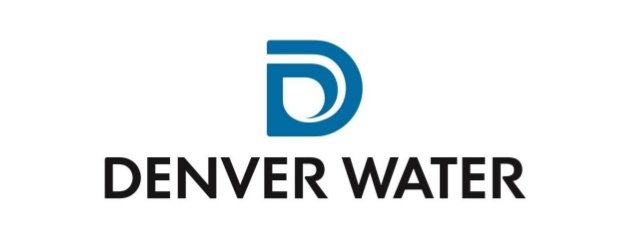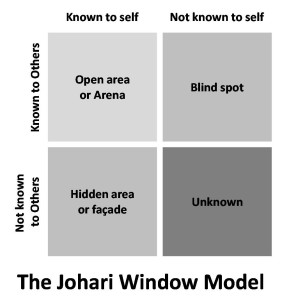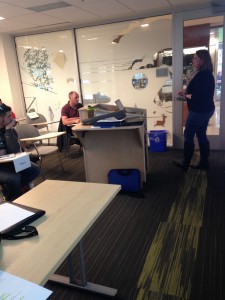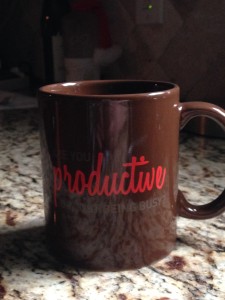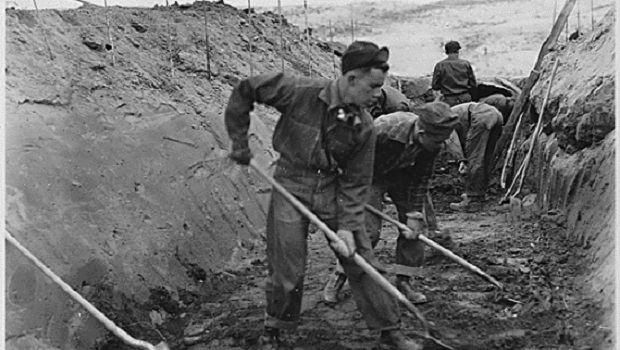
Although I haven’t done it in a while, one of my favorite things to do was to speak to students about how I applied my degree after college. When you earn a degree in a liberal arts discipline, this is a common question. And people will always tell you, especially people who have found success and had some longevity in their careers, “What’s great is that you can do just about anything!”
That’s true. And what sucks is that you can do just about anything. So where to start?
When I began my career, I started pounding the pavement and met with as many people as I possibly could and asked them about their jobs. I asked my parents to introduce me to their friends. I asked my friends’ parents to do the same. I leaned on my professors to introduce me to alumni they were still close with. I didn’t go into any single one of those meetings looking for a job directly from the person I had met. All I wanted was for them, after learning more about my skills, my interests, and my aspirations, to introduce me to more people who might be of interest.
I did this for two reasons. One, I didn’t know jackshit about the working world and figured I needed to learn more about it before I actually tried to dip my toe into it. And two, I figured if I met enough people, somewhere in the big, terrifying world would be an opportunity that was the right fit both in terms of my skills fulfilling the need of someone looking for help, and in terms of helping me find some degree of vocational satisfaction.
Sure enough, I landed a job within a few months, and while it wasn’t a perfect fit, the whole time I was there I had my eye on this PR firm I’d met through a contact of a contact and waited for a position to open there. Eight months later, I interviewed with six different team members and received an offer to come work for them. At the time, it was a dream gig, and I spent nearly four years there.
This experience, I didn’t realize until very recently, serves as metaphor for my entire career.
I can recall the effort of finding a job upon college graduation with remarkable clarity. I even left out the part where I thought I wanted to work for the Rockies, so I found a friend of a friend of a friend who worked there and dropped off a resume a week (each with a different cover letter!) for six weeks until he punted me to someone who would interview me. They ended up offering me a job that I somewhat surprisingly turned down. Life is weird.
Anyway, when I talk to college kids now, as someone who worked for a well-regarded PR agency on award-winning campaigns, managed all regional public relations for a Fortune 500 company including a $2+ million charitable giving budget, and have now started my own consulting practice – the message I convey to them is one of diligence and perseverance.
Many people have this charming notion that PR and government relations is a world of glamor. Talking to federal elected officials! Going to galas! Interfacing with the news media and coordinating big advertising campaigns! It’s like Mad Men! Or Samantha from Sex and the City! Or Thank You For Smoking! Sounds fun, right?
And sure, some of that exists. I’ve met and spent significant time with both of Colorado’s current senators, the current governor, the last two governors before him, the governor of Wyoming, his predecessor, the entirety of Wyoming’s congressional delegation, a shitload of reporters (some of whom I keep on speed dial to this day), and a bunch of other people of notoriety. Also, due to attending probably at least 20 charity galas a year (in my corporate days), I bought my own tux.
Here’s what people don’t understand about this work. You’re not doing these glamorous things instead of your regular job, you’re doing these things on top of your regular job. The job you go to every day, think about whatever level of stress that involves. Now picture not going home afterward, but going to schmooze and meet and compile additional contacts because it’s useful to whatever enterprise you’re serving. That’s life in PR and Government Relations.
It bears mention that I recognize how much of this sounds like gold-plated bellyaching. Oh, poor little rich girl… don’t like going to the Ball to eat prime rib and drink expensive vodka? Boo fucking hoo. So let’s change this up a bit.
As difficult as keeping a schedule like the one I list above is – and make no mistake, it is – I grant that it’s still a marker of professional success. Very few get to parachute directly into the upscale world of professional elbow-rubbing with dignitaries. It takes a long track record of doing shit that no one else wants to do.
And that’s exactly what success means in my professional world. You’ve got to be willing to tackle the projects, work for the industries, swallow your pride, do the shit, about which people literally say, “You couldn’t pay me enough to do that.” To which I reply, “Oh yes, you could. And your price is lower than you think.” So what does this look like?
For one client at the PR firm, I drove out to Wheat Ridge on a night when the high temperature was 6, set up poster boards for the public to review in a side room of a rec center from 6-9 pm because the local government required us to update everyone on the dirt my client was moving around (seriously, it was a meeting about re-grading), and 8 people showed up.
One client wanted to buy ad space in a bunch of publications, so I learned how to buy media on the fly. For anyone who’s never bought media before, you have no idea how complicated this is and just how unpleasant media salespeople can be. These are people who LIVE to haggle with you and dick you around on cost, and I fucking hate haggling. Why did I do this? No one else would, and it needed to be done.
In my corporate gig, one time I drove to Sterling to give a presentation to their Rotary Club, hopped back in the car, went straight to the airport, flew to Houston, met with someone I needed to talk to for dinner, then went to my shitty hotel room next to the highway and prepped for a different presentation the next day at 7:30 am.
And more recently, it means lots and lots of cold calling. Without getting specific, there’s a project pertaining to public infrastructure in a Denver suburb I’m working on. My client wants support from the business community, so that means I go and I knock on doors of businesses, assure them I’m not selling anything, give them my pitch, and ask them to sign a letter of support that’s then submitted to City Council. I won’t tell you how many of these I’m tasked with delivering, but suffice to say it would probably make you gasp.
During this project, while most people are generally very nice, I’ve dealt with rudeness, outright hostility, coldness, disinterest, calls and emails ignored and more general unpleasantness than any one person would ever care to deal with in a day. And I’ve done it several hours a week for the last six months. It’s challenging, and I’ve now mapped this particular suburb in my head in greater detail than I ever had desire to. And there are days I don’t want to do it, but you look inside yourself, and just put your shovel in the ground and start turning over the earth.
Because that’s all success really is. A line from The Usual Suspects seems apropos here. As Verbal Kint is relating the origin myth of Keyser Soze, he says Soze “realized that to be in power, you didn’t need guns or money or even numbers. You just needed the will to do what the other guy wouldn’t.”
And that’s what I do. I’ll go where the other guy won’t. I will knock on the doors, make the calls, and do the work that no one else will. How do you get 100 entities to sign on to a letter to the Colorado congressional delegation to lift the oil export ban? You pick up the fucking phone and start calling them one by one.
This is what PR is. This is what it is to be a self-employed consultant. This is how you earn the glamor parts of your job. This is success.
It’s ditch digging. That’s all it is.
